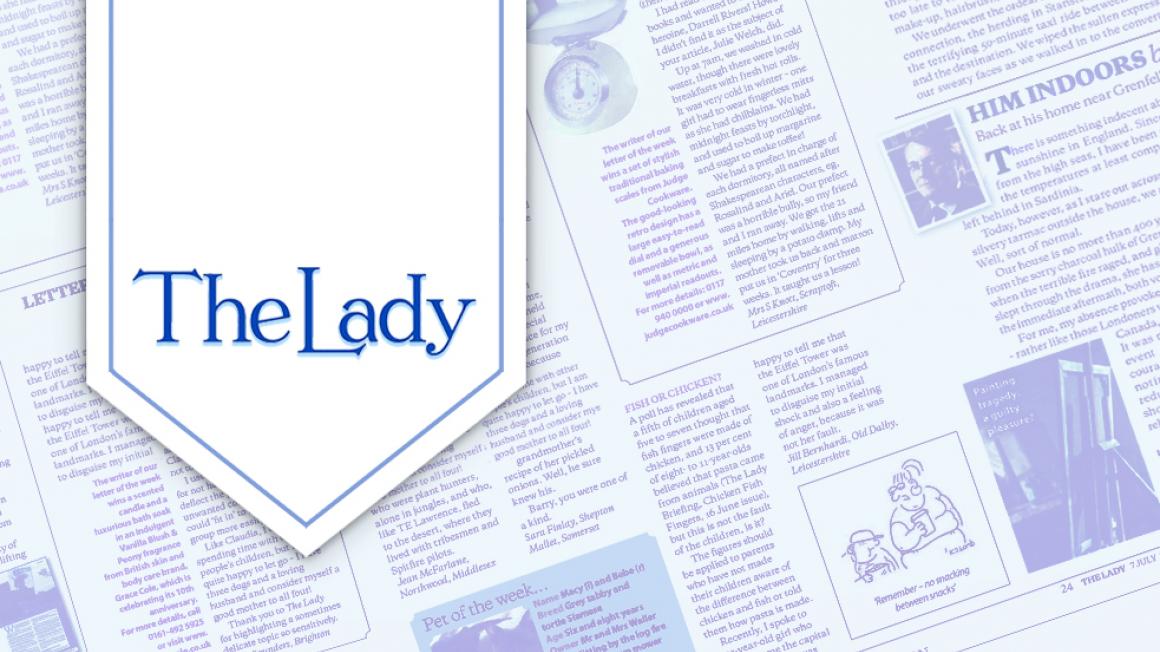The Lady Guide to Modern Manners: 10 October
I wonder how many readers were offended by the former Home Secretary Alan Johnson’s use of the Lord’s name in expressing his idea that although we moan about our own country, if we went to some other countries we would soon want to get back (Bingo, Beer & Andy Capp Britain, 19 September issue). What’s more, it was repeated as a highlighted quote. Can you advise?
Cynthia Thomas, Reading
Dear Cynthia,
I suspect Alan Johnson, along with many other people, might have given little thought to taking the Lord’s name in vain. Swearing and blaspheming involves using language in an almost random way, and the original or actual meaning of the words is forgotten in any but the vaguest sense. Also, using bad language need not necessarily indicate ugly or violent feelings.
Even so, it would perhaps have been better if Alan Johnson had not said ‘Jesus’ in this manner, even if no harm was meant. Research suggests that blasphemous language is more likely to give offence these days than even the most extreme kind of secular swearing. We may imagine that our present age is more liberal than ever – unlike 1965, when Kenneth Tynan famously uttered the ‘F’ word on television, causing outrage in the House of Commons. But in reality, nowadays, while it is apparently acceptable for an MP to say ‘bloody awful’ on Radio 4, it wouldn’t do coming from the presenter or perhaps a senior policeman being interviewed – and that is no reflection upon our supposedly poor opinion of MPs.
In short, we have all sorts of complicated and confusing ideas about who can swear and in what situations, as well as which particular swear words they can use. In the run-up to the Scottish referendum, although it was a small sensation that the prime minster referred to the ‘effing Tories’, it was very important that he used what was really a polite euphemism. If Fiona Bruce suddenly turned the air blue, it would be the end of the world.
In private life, we encounter an abundance of expletives, even from children. Maybe we even use them ourselves. Yet in certain formal situations, or when with senior relations (unless they are blatant swearers too) or people we’ve just met, or in the workplace, swearing is not on. So bad language could cause appalling embarrassment to a group of people at, say, a golden wedding party, all of whom, in other situations, are regular swearers.
At work, blue language signals either genuine loss of temper (not acceptable) or a catastrophic failure to gauge what is appropriate. Language that in the pub might seem jolly and normal, in a solicitor’s office or doctor’s surgery would cause shock and outrage and maybe lead to dismissal. Strange but true.
Please send your questions to thomas.blaikie@lady.co.uk or write to him at The Lady, 39-40 Bedford Street, London WC2E 9ER
WHAT TO DO ABOUT… MILK IN TEA
In the first episode of the new series of Downton Abbey, a forward lady came up from the village to have tea with Lord Grantham to discuss erecting a war memorial. This was in 1924 and the first Labour government had been elected. Times they are a-changing, the viewer is asked to believe. The woman from the village is a part of it.Her first transgression was to propose that Carson rather than Lord G chair the war-memorial committee. She then addressed the venerable butler who was presiding at the tea tray: ‘If that’s for me, milk in first, please.’
The astonishing thing is that 90 years later we all know exactly what this means. Milk in first is ‘common’. Only 10 years ago, an important London publisher told me that his mother had done so much in the village that at her funeral they’d had to have 100 milk-in-firsts up to the house. Milk-in-firsts (excuse the label) are usually very insistent on milk in first. If it isn’t, they won’t drink it. Another thing against them. Actually, it’s ‘common’ to look down on people who like milk in first.


